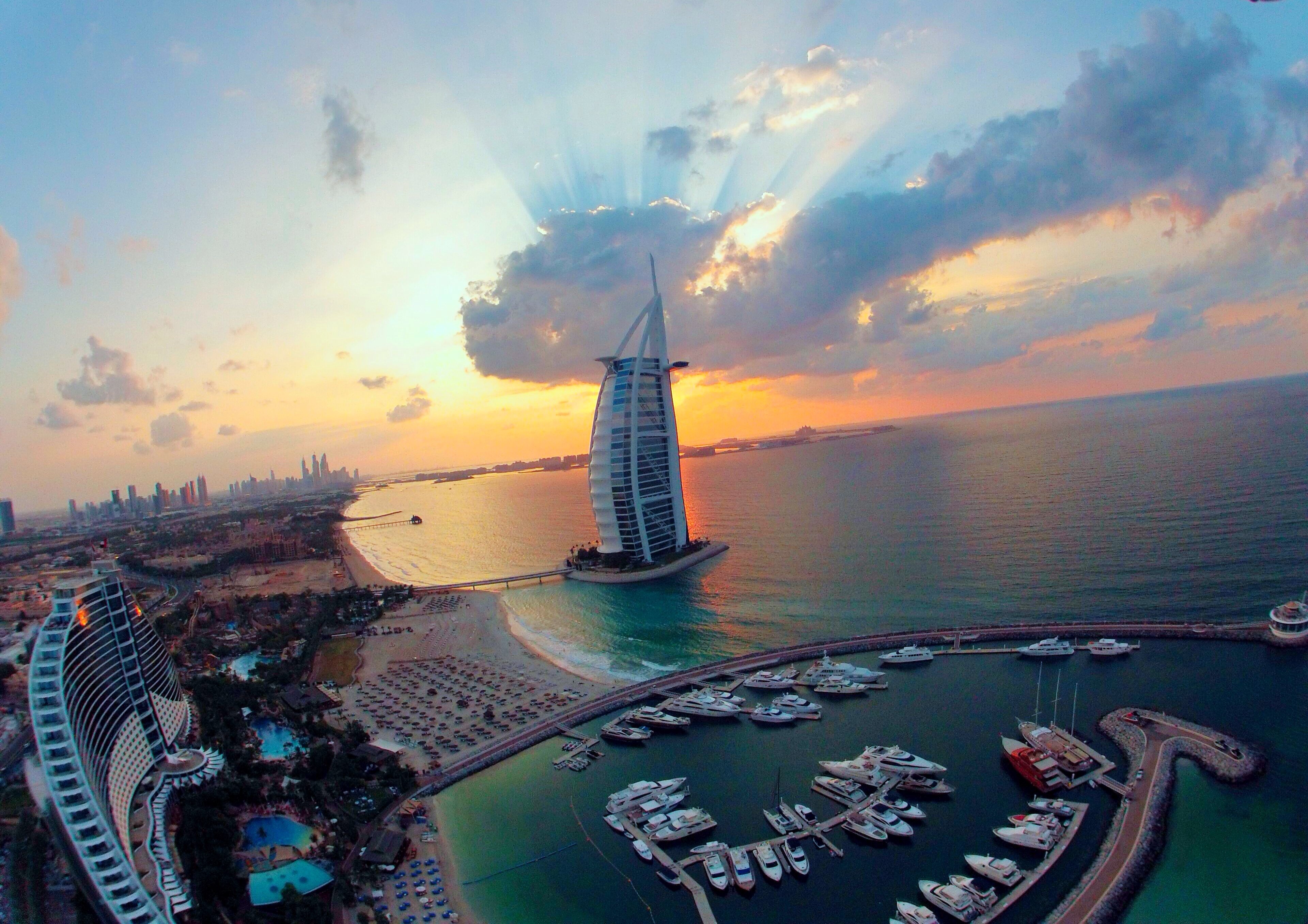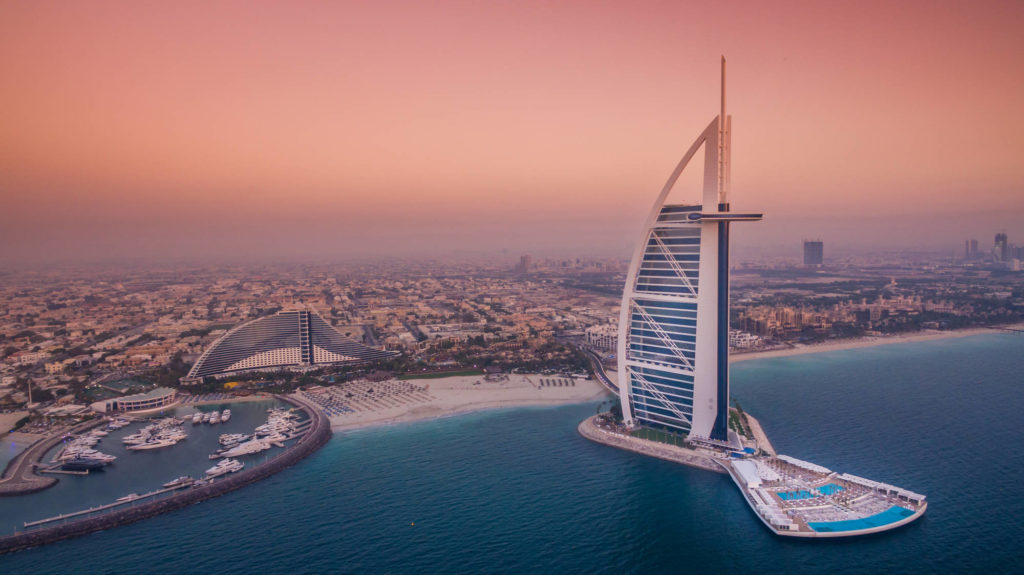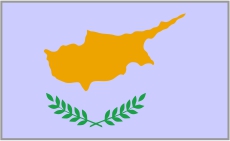ABOUT UAE
The UAE is a small country in the Middle East, spanning 83,600 sq km. The abbreviation ‘UAE’ stands for United Arab Emirates. The term ‘Emirate’ refers to a principality. It comes from the term Emir and specifically references principalities that are ruled by a dynastic Islamic monarch. There are seven emirates in the UAE – Abu Dhabi (which serves as the capital), Ajman, Dubai, Fujairah, Ras al-Khaimah, Sharjah and Umm al-Quwain. Each emirate has its own monarch, but Abu Dhabi serves as the capital and the Emir of Abu Dhabi serves as President of the UAE.
The UAE’s flag is made up of a red vertical stripe and three horizontal stripes in green, white and black. These colors are traditionally the Pan-Arab colors. Furthermore, the black stands for defeat of enemies, the white for peace and calm, the green for hope and growth and the red for strength and courage.


Dubai a place where opportunities are born and new ideas are embraced, a place that aims to achieve its vision to continue to create a confident, secure society and to build a sustainable, open and globally competitive economy. Dubai is one of the most open and progressive communities in the Gulf region, with people from over 200 nationalities living and working in the emirate. The emirate is one of the safest cities in the world, and is committed to maintaining social harmony and domestic security.
Ruling the Dubai for decades, the deeply rooted Al Nahyan Arab ancestry goes back to the original Al Bu Falah tribe of the region. Al Bu Falah’s renowned wisdom and strength won the tribe the leadership and allegiance of Arab tribes in the regions of Abu Dhabi, including Al Dhafra and Al Ain, since the mid-16th century. Al Nahyan’s prominence in the tribe was rooted in its historic and cultural relations with the people of the region.




